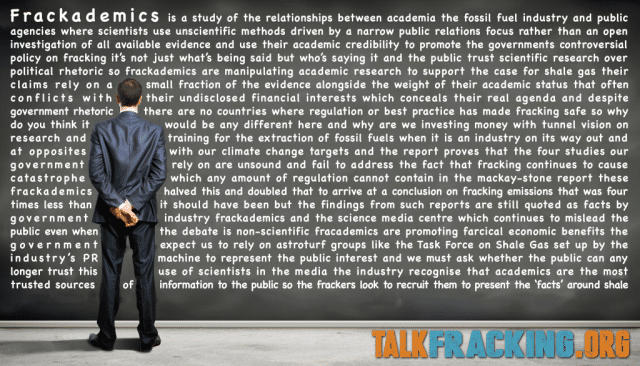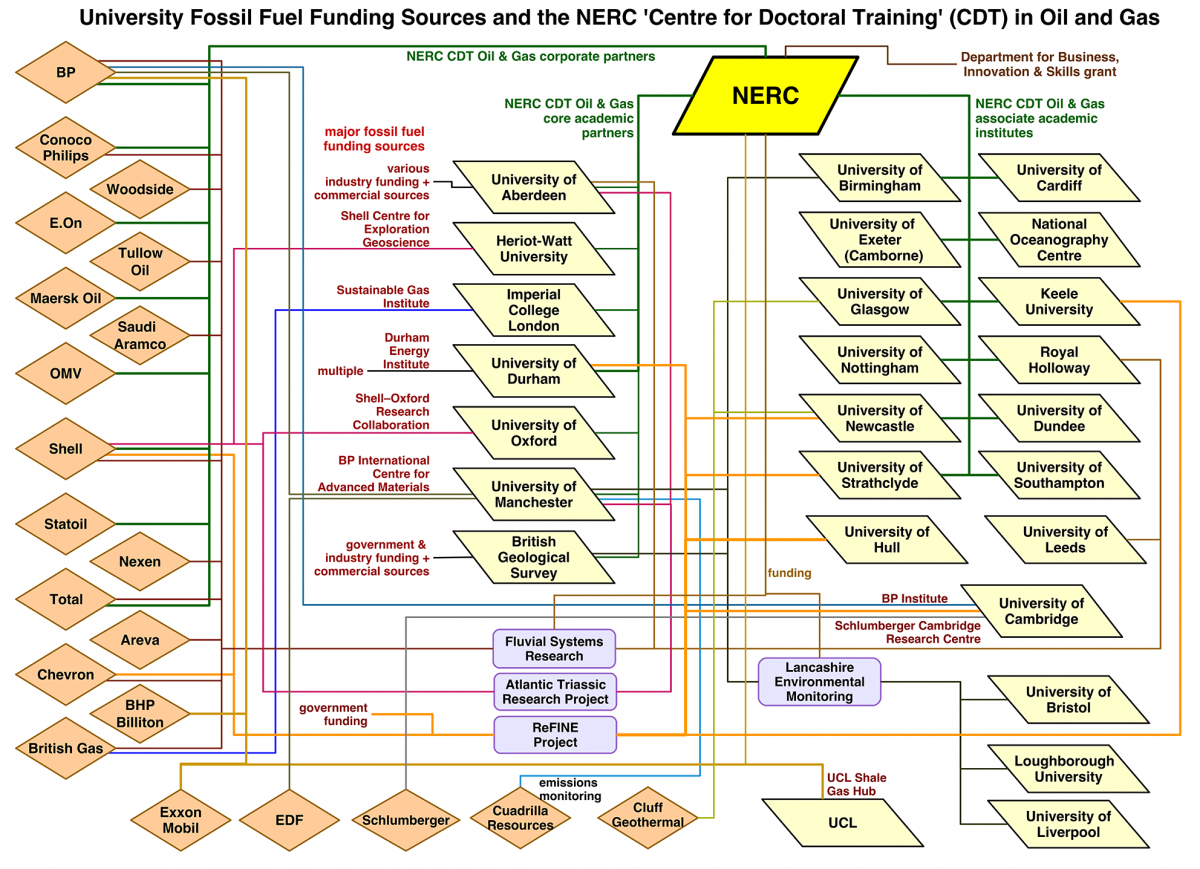While the government has decided to provide tax breaks for the oil industry in the 2015 Government Budget, everyone else has been talking about divestment. Ben Lucas looks at the growing movement and new evidence published this week on the relationship between government, universities and fracking companies.
What started out as a grassroots campaigning tactic to lobby big institutions to stop backing non-renewable energy production, has this week gained large-scale mainstream support.
The Guardian’s “keep it in the ground” campaign has now gathered a petition with over 60,000 signatures to ask the world’s largest charitable foundations to divest their endowments from fossil fuels. The UN has also come out in open support for the increasingly global movement.
And this week a report published by TalkFracking, a campaign group supported by Vivienne Westwood, on ‘Frackademia’ seeks to raise awareness about the influence of the fracking industry in university research departments.
A ‘Positive View of Fracking’
The investigation, carried out by Paul Mobbs, an environmental researcher, looked into the relationship between the fracking industry and academia. But it findings have done more than that, unravelling the extensive relationship and networks that exist between universities, the government, and the oil and gas industry.
The report contains a Freedom of Information request that reveals how oil and gas companies were targeting scientists to provide a more positive view of fracking.
In an email correspondence between the Department for Energy and Climate Change and Centrica, one Centrica employee wrote:
“Our polling shows that academics are the most trusted sources of information to the public so we are looking at ways to work with the academic community to present the scientific facts around shale.”
The report also outlines how some of the main reports used by government had used carefully selected data.
In an interview with Mobbs, he commented on one of these reports saying, “if you look at the way they have selected their data, it is not an impartial appraisal of all the data available … they skewed the results to favour a certain outcome.”
Environmental Research Funding
The report also explains how the higher education reforms implemented by former BP boss Lord Browne (who has only recently stopped being the chairman of fracking firm Cuadrilla) in 2010 aimed to encourage more corporate involvement in funding academic research projects.
This has done this by part-funding UK research councils to create so-called Centres for Doctoral Training (CDTs). The CDTs then distribute the funding provided by the government and industry partners to doctoral students. In addition, CDTs act as networking centres for students and industry.
The National Environmental Research Council (NERC), one of Britain’s most prominent science research institutes for the natural environment, established the CDT in oil and gas in 2013 to train the next generation of geoscientific and environmental researchers in this field.
Mobbs is critical of this structure. He said it allows the oil and gas industry to exert “soft power” on researchers.
He said that the CDTs “are a conduit to allow the industry to have consenting links. They don’t control professors and tell them what to do. But if you are giving someone a few million quid you are expecting a certain number of outcomes from that … It’s the asks that come with the money.”
Map showing the network of relationships that currently exist between universities, government and the oil and gas industry.
Current Conflicts of Interest
The report outlines two current case studies of ‘frackademia’ where there is a clear conflict of interests.
Firstly, the University of Manchester has founded a company called Salamander, which has a contract with Cuadrilla Resources to carry out the monitoring of their activities in Lancashire. Furthermore, the funding to develop the equipment used in this work, was provided by NERC.
Secondly, Professor Paul Younger, who has worked on two of the four major government reports (which this investigation critiques), has recently written two more papers: one arguing that some of the governments proposed controls on fracking were too stringent, and the other critical of supposed well failure rates.
Younger, along with other senior figures from the university, is also a director of Five Quarter Energy, which has underground coal gasification licences along the northeast coastline. They have also received financial support from the government.
Where Next For Divestment?
After finishing the report, Mobbs was left with the question “why is this prominent environmental research body channeling money into something that will create environmental damage?”
“We know it will create environmental damage … [the government] is doing things on an ideological basis because they want to.”
The demand for industry funding means that universities are “pandering to the needs of industry today, neglecting what it is that society will need to be looking at in 20, 30, 40 years’ time,” Mobbs argued.
He concluded: “Divestment shouldn’t just be thinking about the now in terms of who does the university bank with and who does the university invest its assets with. They should be looking at what is the whole function of an institute of learning.”
Photo via TalkFracking
Subscribe to our newsletter
Stay up to date with DeSmog news and alerts








